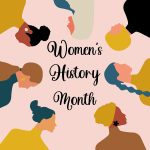We see a lot of pieces out there with titles including “X number of things” to do/not to do or say/not to say regarding childless and childfree people, but a piece by Helene Tragos Stelian is one of the smartest I have seen in a while.
After years with suburban moms, she had moved to the city and was a soon-to-be empty nester. She met a new friend and asked if she had kids, and the woman responded “no.” Then a moment of discomfort followed. I bet lots of moms and women without children have felt that moment of discomfort she speaks of.
Tragos Stelian did not want to assume what might be OK to say and not to say in the future when conversing with women without children. So she reached out to a few women she knows who have no children and asked their blunt and honest responses to questions like these:
“What was the etiquette around engaging with childless women?
Was it OK to talk about my kids?
Could I ask about their circumstances?
And could I even use the term ‘childless’?”
Here are seven things the women told her, each with a bit of cut-to-the-chase comment by me.
Don’t ask me why — or assume you know why
Don’t ask, indeed. If childless and childfree women want to explain why they will.
Asking why, and certainly assuming one knows why a woman does not have children both have the underlying pronatalist assumption that a woman should want kids.
Don’t pity me
With childless women who are still struggling with the reality that they will not have their own biological children, it can be easy to feel badly for them. Many childless women don’t want this, and also have the feeling that Christina does, who Tragos Stelian quotes, “I don’t want people to tiptoe around me.” Moms should not feel they have to do this or feel guilty that they have children and their childless friend does not.
If the woman is childfree – does not have children by choice – the last thing to portray in a conversation is pity. Why pity her if she does not want kids? We’re back to pronatalist assumption.
Don’t judge me
This can sound easy, but in our pronatalist society, for most, it’s not. As I have written, I do see progress in this regard, but we still have a ways to go.
Don’t assume I don’t like kids
This is such a common pronatalist assumption, and myth with a capital M.
Don’t exclude me
Exclusion can take many forms, from not being invited to child-focused festivities, to being left out of a conversation, or judged for offering counsel or advice involving the children. Here I say, treat your friend who happens to have no children like any friend. Having children should not act as an anchor on how to approach a friendship. Female friendship has a kaleidoscope of aspects to it, and motherhood (for one friend) is only one.
Don’t call me childless
Regarding the terms, childless or childfree, I do agree with Jane: “Why do you have to be identified through whether or not you have children? … It’s an outdated, misogynistic way of defining women…”
And childless or childfree labels are pronatalist; the first syllable as “child” obviously reflects its child-centric nature. For the childfree I chose to frame the term as “without children” by choice for Families of Two, but even there, the word “without” points to “less,” like in the word childless, at least for me.
So for now, in my writings, I still choose childfree as the lesser of words with more negative connotations. And I tend to use childless for women who want children and don’t have them, because for them, they very often feel truth in the idea that something is lacking.
In conversation, I avoid these kinds of labels directed at the other person. I keep it to – “has” kids, or “has no” kids.
Don’t be rude
This gets back to any comment or question laden with pronatalist assumption. Take the list of the sampling in Tragos Stelian’s piece:
“You don’t really understand what it means to be a woman until you’ve had a child.”
“You should have had children. You’re so great with them.”
“Having kids was the best thing I ever did.”
“Who will take care of you when you’re old?”
“Didn’t you want to have children?”
“Don’t you like children?”
“I bet you regret not having children.”
“You could have adopted. Why didn’t you?”
“Oh, so you chose a career over having children.”
ALL reflect a mindset that is stuck in the baby matrix.
To converse well with women who have no children takes an awareness of pronatalist assumptions and knowing the truth behind them so they don’t ultimately drive comments and questions in conversations. This also goes for conversing with women who have children, for that matter (e.g., assumptions about only children, the notion that one has to keep having them until she gets the gender she doesn’t have yet, etc.).
I contend that if outmoded ways of thinking about parenthood and reproduction did not exist in the minds of conversers to begin with, these seven things would not even need to be addressed.





